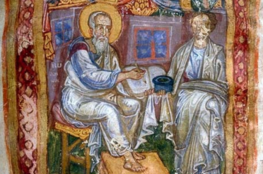One day off, but here it goes. You can find earlier installments by clicking the “Reading” tag.
- Eric Posner, “Against Human Rights,” Harpers – You have to penetrate the paywall (or purchase the October 2014 issue) to get this, but — depending on your interest in human rights/international law — it’s probably worth it. The piece is an excerpt from Posner’s forthcoming The Twilight of Human Rights Law (just one more drop in a vast sea of such literature). When I was still a law student I had the quaint idea of being a human-rights lawyer; that changed quickly after my experience in Costa Rica in 2005. An unimaginative means of acquiring cheap moral capital largely defined what some call “the human rights discourse,” and I see little evidence that situation has changed over the past decade. Posner’s attack on human rights law, which began back in the early 00s, is pretty simple: Human rights law has no discernible effect on human rights compliance and much of what passes for a “human right” these days is contestable. Without any proper grounding human rights law will be, and can only be, an assertion of particular ideological interests, and once that truth is out in the open, it’s unsurprising that fewer and fewer states care about it.
- Fr. Reginald Garrigou-Lagrange, “On Royal Government” – I know I already promoted this one on the blog yesterday, but let me further encourage you to read Andrew Strain’s literal translation of this essay/preface composed by the leading Thomist of the 20th C. By grounding himself in the classic principles of governance elucidated by St. Thomas Aquinas, Lagrange offers a refresher course in right order and the common good. His orientation may appear alien to us today, but that’s only proof of how adrift we’ve become from the truth.
- Bishop Bernard Tissier de Mallerais, Faith Imperiled by Reason: Benedict XVI’s Hermeneutics – This book-length translation of Bishop Tissier’s controversial article on certain aspects of Benedict XVI’s hermeneutics and theology only had a brief shelf life in the U.S. in printed form; copies of it remain available online, of course. While a lot could be written about what is right and what is more questionable about some of Tissier’s conclusions (and tone) regarding the thought of our Pope-Emeritus, it’s important to remember that no theologian of the Church is infallible and that even popes can make theological mistakes. There’s no good reason to keep the curtain closed, especially in this day and age of “discourse” and “discussion.”



